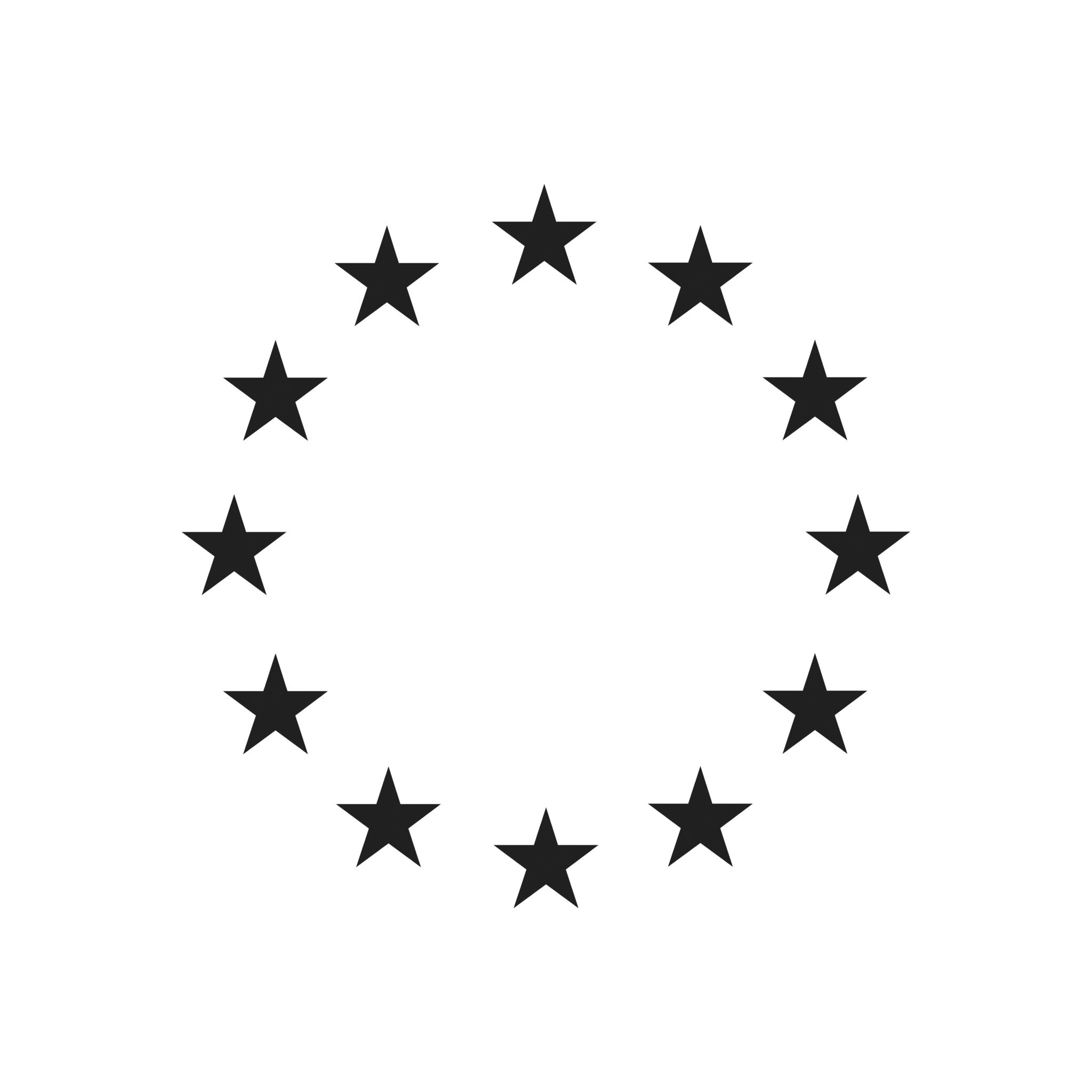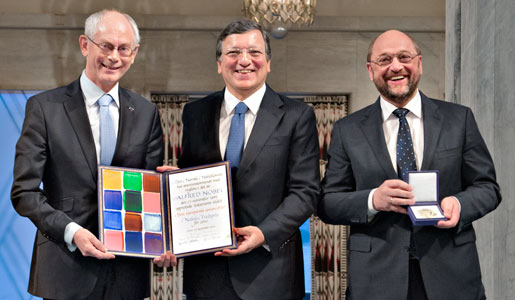European Union
Speed read
The European Union was awarded the Nobel Peace Prize for 2012. The union and its forerunners have for over six decades contributed to the advancement of peace and reconciliation, democracy and human rights in Europe.

Full name: European Union (EU)
Native name: European Union (EU)
Founded: 1952
Date awarded: 12 October 2012
From a continent of war to a continent of peace
The Second World War left Europe in ruins. Many believed that closer economic ties between countries could promote growth, trust and peace. In 1950, the EUs forerunner, the European Coal and Steel Community, was established by West Germany, France, Belgium, the Netherlands, Italy and Luxemburg. Today, 27 countries are EU members and the EU cooperation extends into an increasing number of fields and bodies. Membership in the EU gives access to an economic community, and requires respect for human rights and democratic government. During the 1980s, Greece, Spain and Portugal joined. Ten new countries became members in 2004. Today, the EU is considering applications from several Balkan states. The EUs stabilising role has helped most of Europe to transition from war to peace.
"The contribution which an organized and living Europe can bring to civilization is indispensable to the maintenance of peaceful relations."
- Robert Schuman, French foreign minister, Paris, 9 May, 1950
Reconciliation and fraternity in Europe
Between WWI and WWII, several Nobel Peace Prizes honoured German-French reconciliation. German Gustav Stresemann and French Aristide Briand got the prize in 1926 and German Ludwig Quidde and French Ferdinand Buisson in 1927. In 1935, Carl von Ossietzky got the prize for warning of Hitler’s rearmament. The Nobel Committee stresses the significant reconciliation work of the EU and its forerunners. Today, war between Germany and France is unthinkable. The Committee considers the EU’s work to fulfil Nobel’s Peace Prize criteria of “fraternity between nations” and “holding and promoting of peace congresses”.
EU facts
- Founded in 1957 (EEC)
- Members in 2012: 27
- Capital: Brussels
- Official languages: 23
- Citizens: More than 500 million
- Fundamental idea: Mutual economic dependence as a means of avoiding conflicts between states.
- Core values: Human dignity, democracy, equality, constitutional democracy and respect for human rights.
- The four freedoms: Free movements of people, services, goods and capital.
The EU today
Europe and the EU face economic difficulties and social unrest. Several countries are struggling with large budget deficits, and many have to make drastic spending cuts. There are 25 million unemployed citizens in the EU today, 5.5 million under the age of 25. Spending cuts and unemployment have led to civil unrest and demonstrations, as well as demands to leave the union. The EU grows nonetheless. Croatia joins next year, Montenegro has applied and Serbia is a candidate. Thus, the reconciliation of the Balkan states continues and European cooperation is strengthened.

© The Nobel Foundation 2012. Photo: Ken Opprann
Excerpt from the Nobel Committee’s prize announcement
The EU and its forerunners have for over six decades contributed to the advancement of peace and reconciliation, democracy and human rights in Europe. In the 1980s, Greece, Spain and Portugal joined the EU. The introduction of democracy was a condition for their membership. The fall of the Berlin Wall made EU membership possible for several Central and Eastern European countries, thereby opening a new era in European history. The division between East and West has to a large extent been brought to an end; democracy has been strengthened; many ethnically-based national conflicts have been settled.
| Democracy Greek for government by the people. A form of government in which all adult citizens participate in the governing of the state and everyone is equal under the law. Most democracies are representative governments. Individuals are elected to assemblies that take decisions on behalf of all citizens. |
| Human rights Rights that apply to all persons regardless of gender, race, ethnicity, religious affiliation or nationality. The most important are the rights enshrined in the UN Declaration of Human Rights, adopted in 1948. |
Learn more
Read or watch the Nobel Prize lectures by Herman Van Rompuy, President of the European Council, and José Manuel Durão Barroso, President of the European Commission.
Disclaimer: Every effort has been made by the publisher to credit organisations and individuals with regard to the supply of photographs. Please notify the publishers regarding corrections.
Nobel Prizes and laureates
Six prizes were awarded for achievements that have conferred the greatest benefit to humankind. The 12 laureates' work and discoveries range from proteins' structures and machine learning to fighting for a world free of nuclear weapons.
See them all presented here.
